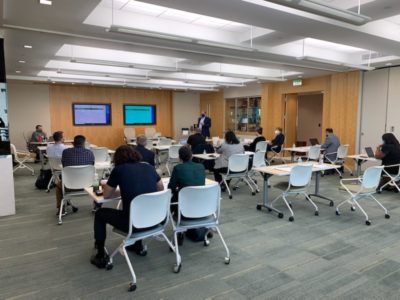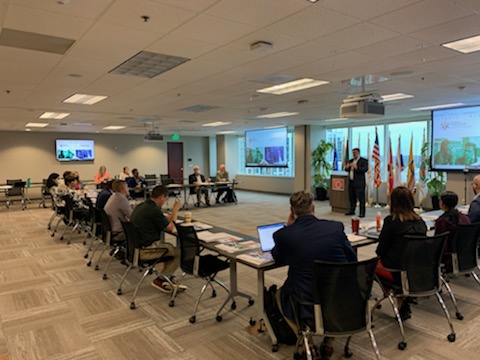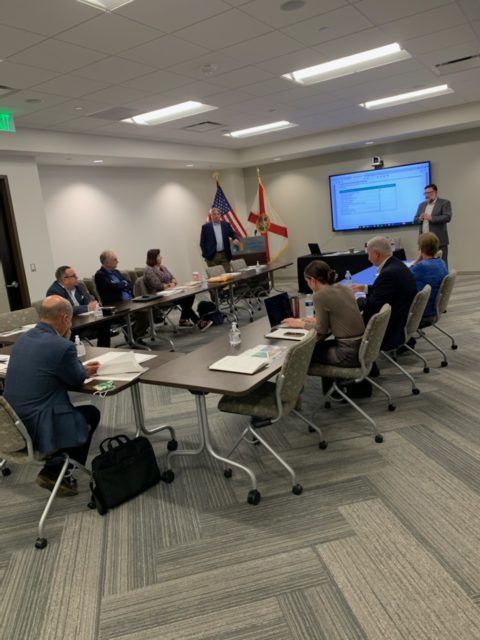(Orlando, FL) – The Florida Consortium of Metropolitan Research Universities and the Council for Adult and Experiential Learning (CAEL) are partnering to help inject the Cybersecurity job market in Florida with talented students from the Consortium institutions in metro Miami, Tampa, and Orlando.
Positions within the Cybersecurity sector represent a growing occupational area of need. CAEL and the Consortium (using Emsi-Burning Glass labor market data) projected more than 460,000 Cybersecurity job openings in 2021. 22,000 of those openings were in the state of Florida. According to Cybercrime Magazine, those job openings represent 48% of the cybersecurity workforce (Morgan, 2021). Meaning nearly half of the cybersecurity positions in the U.S. are unfilled.
To determine the most in-demand Cybersecurity jobs in the three metropolitan areas and to open dialogue between private industry and higher education leaders, the Consortium organized a series of in-person meetings in December of 2021. Nearly 20 employers from across the state met with dozens of professionals from FIU, UCF, and USF during three meetings held December 7 (Miami), December 9(Orlando), and December 15. The meetings focused on employer needs (opportunity gaps, talent development, recruiting, etc.) and how the private sector can partner with member institutions to develop programs, curriculum, training, and certificates to prepare students at Consortium institutions to fill cybersecurity positions after graduation.
During the sessions, employers in all three metro areas articulated the need for students to come ready to discuss how they gained competencies in soft or foundational skills (critical thinking, reading comprehension, decision making, emotional intelligence, etc.). In the Orlando session, Disney staff said they are “constantly looking for people not only with the technical chops but who can have the conversation.”

CAEL and Consortium host the first Cybersecurity Talent Pipeline Meeting at the Miami Dade Beacon Council on December 9, 2021.
CAEL used Emsi-Burning Glass labor market data to outline “Competency Maps” within Florida. The report outlined the top nine Cybersecurity positions in the state:
- Cyber/Information Security Engineer/Analyst
- Software Developer/Engineer
- Network Engineer/Architect
- Network/Systems Engineer/Architect
- Computer Systems Engineer/Architect
- Computer Support Specialist
- Chief Information Officer/Director of Information Technology
- IT Project Manager
- Information Security Auditor/Business or System Management/Analyst
Employers also gave insight on positions missing from the list like Digital Forensics, Open-source Intelligence Analysts, and engineers who can maintain infrastructure. The Cybersecurity Talent Pipeline sessions also provided a unique lens on how our member institutions can mold career-ready graduates. As UCF Interim Provost and Vice President for Academic Affairs, Michael Johnson, put it in the Orlando session, “help us to steer what we do with our students.”

The Florida Consortium Executive Director Michael Preston welcomes UCF staff and Cybersecurity industry professionals from Orlando, at the second Talent Pipeline meeting on December 9, 2021, at the Orlando Economic Partnership offices.
The Executive Director of the Florida Consortium, Dr. Michael Preston, says the sessions were a fantastic start to creating actionable next steps to provide more opportunities for our students, “We believe these regional engagements are just the start of a conversation focused on elevating the information we have learned from workforce data and seeing how it can be applied in a real-world setting through the eyes of our employers. After all, data does not hire our students, companies do.”

Florida Consortium Executive Director, Michael Preston, and CAEL Moderator, Jeff Marcela, greet USF professionals and Cybersecurity industry professionals in the third Talent Pipeline session on December 15, 2021, at the Tampa Bay Chamber.


